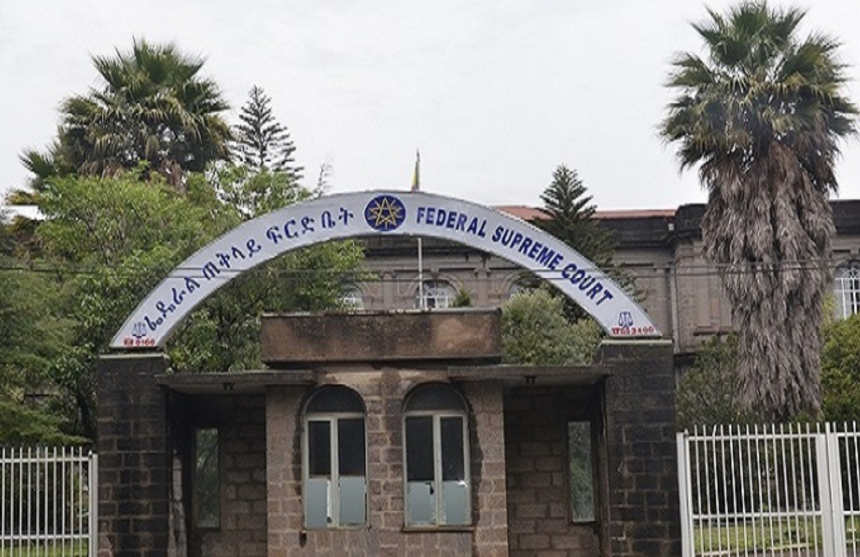
Viewpoints | Mar 30,2019
May 23 , 2020.
Countries in Africa are the least prepared to deal with the health and social consequences of the Novel Coronavirus (COVID-19).
There are only 20,000 ICU beds available in the entire continent, a ratio of 1.7 to 100,000 people, according to surveys carried out by McKinsey, a global consulting firm. Compare this ratio to one ICU bed to 29.4 people in the United States, the country with the most deaths at 100,000. There are only 20,000 ventilators in Africa, two-thirds of which are in South Africa. With only a 0.1pc infection rate on the continent, McKinsey estimates that Africa needs 35,000 ventilators to treat patients who are at high risk of death.
African countries need no less than five billion dollars to pay their way through the provision of medical equipment to deal with the virus, including the purchase of 80 million test kits. There are only half a million test kits available.
The impending economic cost is too depressing to contemplate. A staggering 150 million people are at risk of losing their livelihoods, including 18 million jobs to be lost in the formal sector. It is self-evident that African countries have little to protect themselves in the form of health infrastructure and have a lot to worry about when it comes to safeguarding their economies.
Ethiopia is no different.
The risk of a full-blown outbreak from the Coronavirus has visibly upset its political and economic situation. Much of the attention has been on the former though. With a constitutional crisis closing in, the incumbent is attempting to carve a legal path toward extending its term in office. The means may not be to everyone’s liking, but there appears to be a means. Or so its leaders think.
The same cannot be said on the economic front. Measures taken across the world to contain the spread of the virus have devastated business activities and disrupted global logistics and supply chains. It is a crisis almost on par with the emergency that is faced on the political front. It could last even longer. But it seems long or medium-term plans from the administration of Prime Minister Abiy Ahmed (PhD) are not in sight other than general objectives the administration hopes to attain through spending.
These objectives include “protecting livelihoods and avoiding layoffs," helping “low-income communities," “ensuring economic resilience and quick recovery,” and “supporting businesses that are severely affected by the pandemic." These are only response efforts geared toward responding to disruptions as they come. At best, they are moves taken on the spur of the moment.
Not surprisingly, the administration has been reactive instead of being proactive. It brings up feelings of deja vu from the administration’s failure to prepare an economic response plan earlier this year when signs were pointing toward the current global recession. The administration waited until the pandemic was kicking in.
It is still not entirely clear to what extent the economic devastation will be for Ethiopia. But there have been projections and estimates that are ominous for a country that requires sustained and rapid economic growth to maintain political and social stability.
The International Monetary Fund (IMF) has already slashed the gross domestic product (GDP) forecast for Ethiopia by almost half to 3.2pc. It will be the lowest rate of growth the country will have seen in over 15 years; a far cry from the impacts of the global financial crisis a decade ago, which barely caused a ripple.
Even before the first confirmed case of the virus, businesses dependent on imported goods had started to feel the heat of the changes in disruption. After the partial lockdown measures in the country, and when the effects of the pandemic on economies around the world had snowballed into a recession, business activities here have been severely devastated.
In urban areas, close to 1.9 million jobs by the self-employed might be lost over the next few months, according to the Jobs Creation Commission. A quarter of a billion dollars will be wiped out from this sector of employment as well. Hoteliers are losing 35 million dollars every month as a result of a tourism industry that has almost ground to a halt.
Even the usually upbeat Cepheus Capital, a private equity firm, has indicated the dire situation the economy finds itself in. Even with a lower rate of spread of the Coronavirus, 2.3pc of GDP would need to be spent in stimulus packages and a central bank liquidity intervention equaling 1.2pc of GDP would be necessary. It is over a third more than what the federal government had planned to spend this year.
Prime Minister Abiy's administration has not disappointed in meeting the calls for the government to widen its fiscal gap to respond successfully to the economic effects of the pandemic. Since March, it has been remitting tax debt; waiving employment, rental tax and pension contributions; and extending payment waivers for VAT. It has also made 15 billion Br available from the central bank bonds the banks were required to buy to address their liquidity issue and provide working capital for businesses affected by COVID-19. Loans are to be rescheduled for businesses as well.
These efforts would be laudable had their consequences been evaluated with the same enthusiasm they were being unveiled. It is not clear how the government plans to pay for all of these measures. It is not known if it can.
The administration would have been better off by preparing for a higher fiscal deficit of up to five percent of the GDP, amounting to five billion dollars. Policymakers can plan to spend these funds in supporting individuals and households through direct cash transfers; ensure the survival and retention of small and medium enterprises; and shield strategic corporate institutions with far greater impact to the economy.
In doing so, speed and agility are of the essence, two crucial factors now lacking in the response efforts by the administration.
There is a legitimate fear in gambling with a wide fiscal deficit and external debt financing. The first would have adverse effects on the economy. Cutting taxes while at the same time attempting to bankroll the economy will inevitably leave a gaping hole in the fiscal space. Mending this space by printing money will inevitably worsen inflation. Combined with the potential for massive job losses, this will be a recipe for stagflation, the worst form of economic crisis.
It appears that Ethiopia is edging toward this phenomenon. Business activity has dampened, which normally suggests a fall in spending, but the cost of goods and services keeps increasing. It is intimately related to the economy being import-dependent.
Even the administration knows its plan will, in itself, do very little to address the challenge. This seems to be why, like almost every other developing country, the government is pleading for debt rescheduling from bilateral and multilateral creditors.
"Do we continue to pay debt or redirect resources to save lives and livelihoods?"
Prime Minister Abiy raised this question in his plea to the world published in The New York Times. It is a view informed by the depressing fact that his country spends almost half of the revenue earned from the export of goods on servicing external debt.
If Ethiopia does receive favourable debt restructuring packages, if not relief, it can go a long way in addressing the current economic crisis and financing the five billion dollars in the stimulus package. But there is no guarantee this would happen, and the future of the country should not depend on it.
Its biggest bet before the pandemic was to address macroeconomic imbalances through a string of liberalisation and privatisation efforts. In a world where banks do not have the appetite to provide access to credit, because of the lack of certainty, the former will be hard. The latter, too, should be out of the question. There will be very few willing to buy assets under such times of uncertainty leading to their undervaluation.
This requires that the administration be pragmatic. Whatever it does in terms of fiscal or monetary policy, it is not going to be able to fully cushion the impact. There will be massive amounts of layoffs, worsening inflation and business closures.
It needs to be acknowledged and followed up with a more pragmatic response plan that can focus its resources and attention on protecting strategic sectors and industries on which the economy is dependent for its survival. These could be the financial sector, and industries that generate foreign currency and have helped to stimulate the economy, such as construction, manufacturing, wholesale and retail. It is about shielding small and medium enterprises, through which millions of jobs can be protected.
No less indispensable is the agricultural sector, which provides the largest contribution to GDP, a source of export goods, and a livelihood for tens of millions of Ethiopians. It has become the casualty of the topsy-turvy state of the political domain.
PUBLISHED ON
May 23,2020 [ VOL
21 , NO
1047]

Viewpoints | Mar 30,2019

Editorial | Jan 07,2023

Radar | Apr 24,2023

Radar | Dec 19,2021

Editorial | Sep 04,2021

Radar | Dec 16,2023

Fortune News | Apr 17,2020

Radar | Apr 17,2020

Radar | Feb 23,2019

Fortune News | Sep 14,2019

My Opinion | 132105 Views | Aug 14,2021

My Opinion | 128507 Views | Aug 21,2021

My Opinion | 126435 Views | Sep 10,2021

My Opinion | 124046 Views | Aug 07,2021

Dec 22 , 2024 . By TIZITA SHEWAFERAW
Charged with transforming colossal state-owned enterprises into modern and competitiv...

Aug 18 , 2024 . By AKSAH ITALO
Although predictable Yonas Zerihun's job in the ride-hailing service is not immune to...

Jul 28 , 2024 . By TIZITA SHEWAFERAW
Unhabitual, perhaps too many, Samuel Gebreyohannes, 38, used to occasionally enjoy a couple of beers at breakfast. However, he recently swit...

Jul 13 , 2024 . By AKSAH ITALO
Investors who rely on tractors, trucks, and field vehicles for commuting, transporting commodities, and f...

Jul 13 , 2025 . By YITBAREK GETACHEW
The Addis Abeba City Revenue Bureau has introduced a new directive set to reshape how...

Jul 13 , 2025 . By BEZAWIT HULUAGER
Addis Abeba has approved a record 350 billion Br budget for the 2025/26 fiscal year,...

Jul 13 , 2025 . By RUTH BERHANU
The Addis Abeba Revenue Bureau has scrapped a value-added tax (VAT) on unprocessed ve...

Jul 13 , 2025 . By NAHOM AYELE
Federal lawmakers have finally brought closure to a protracted and contentious tax de...